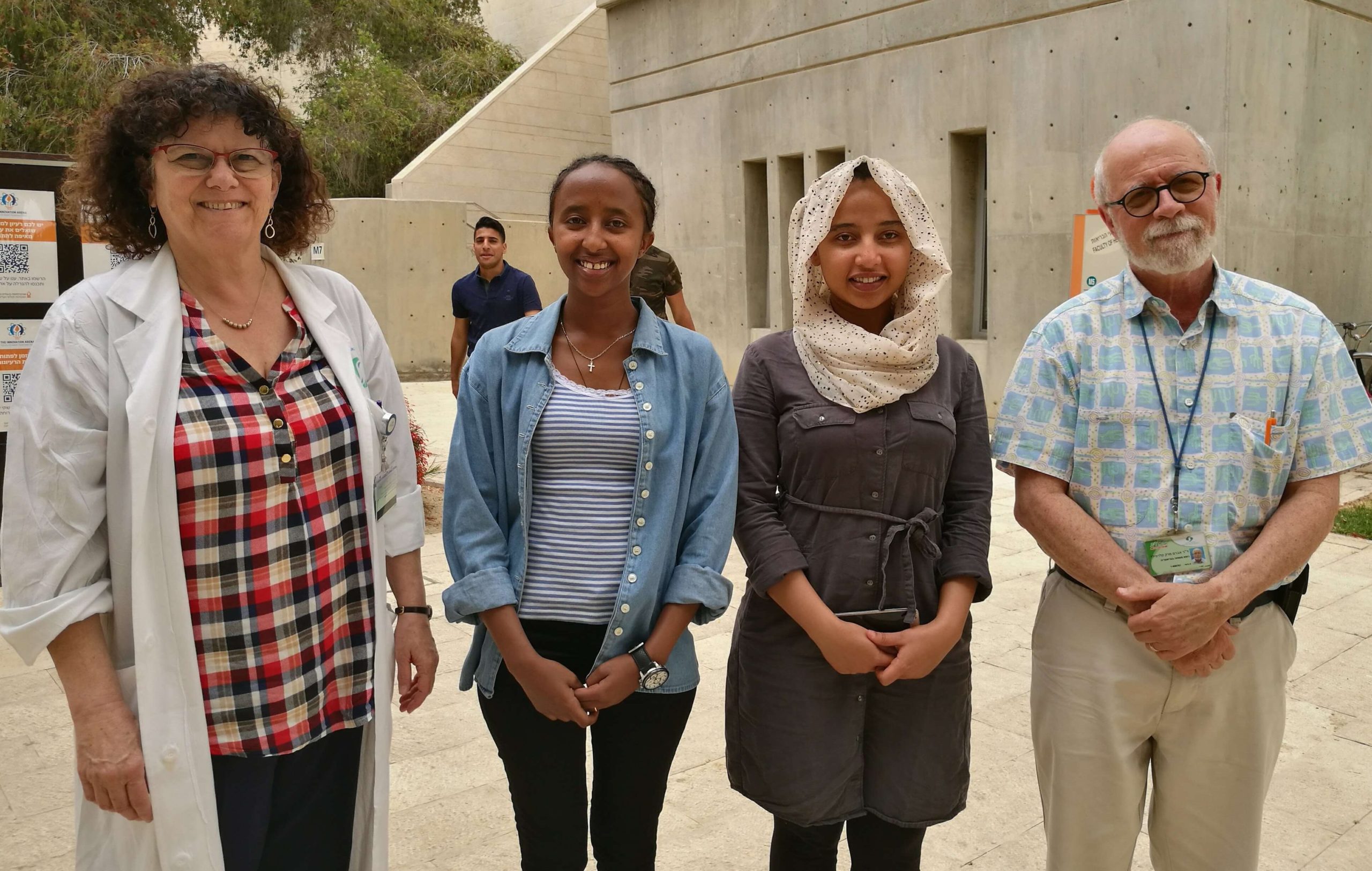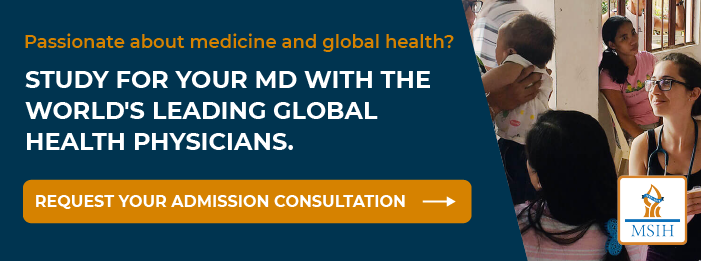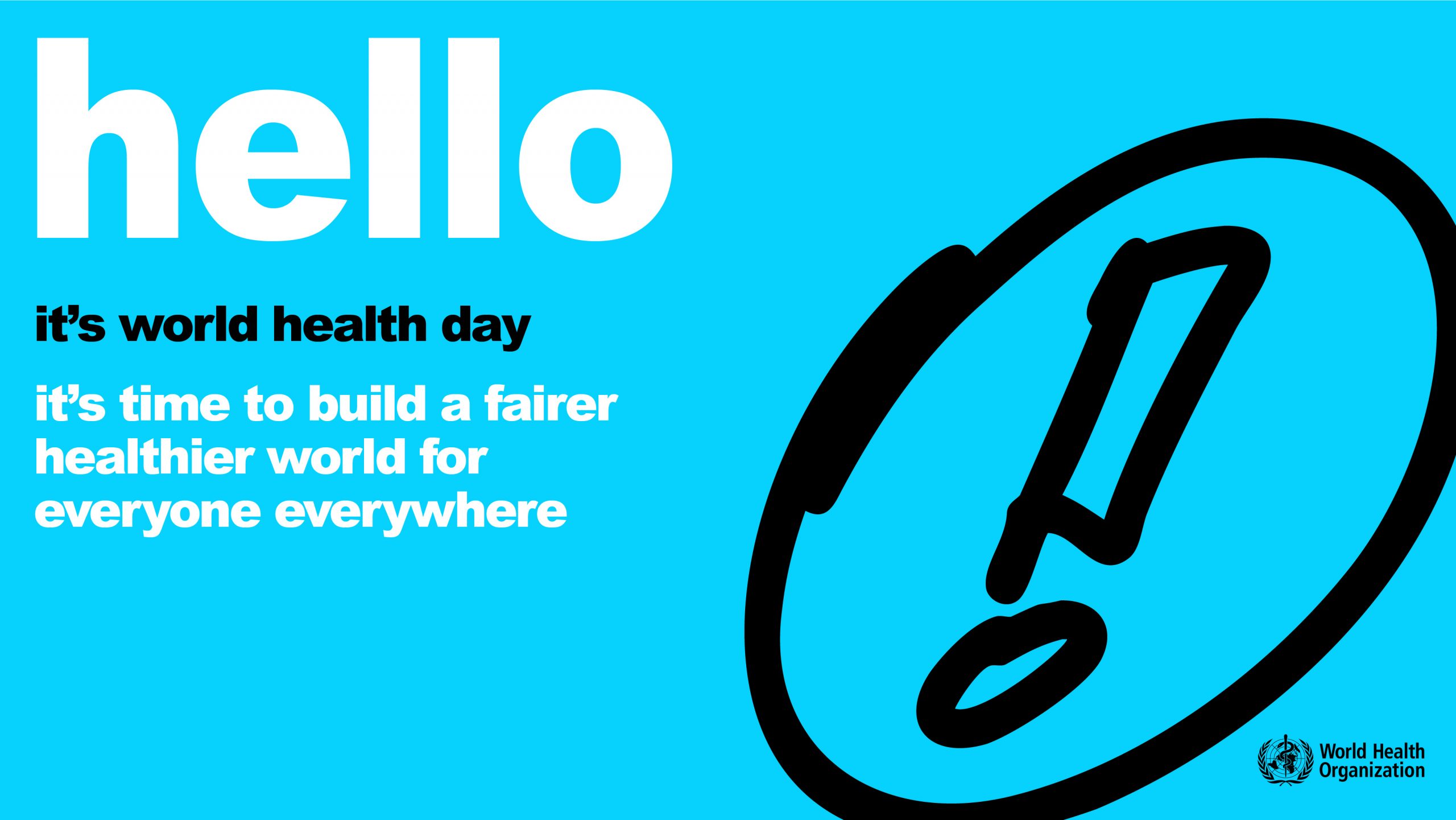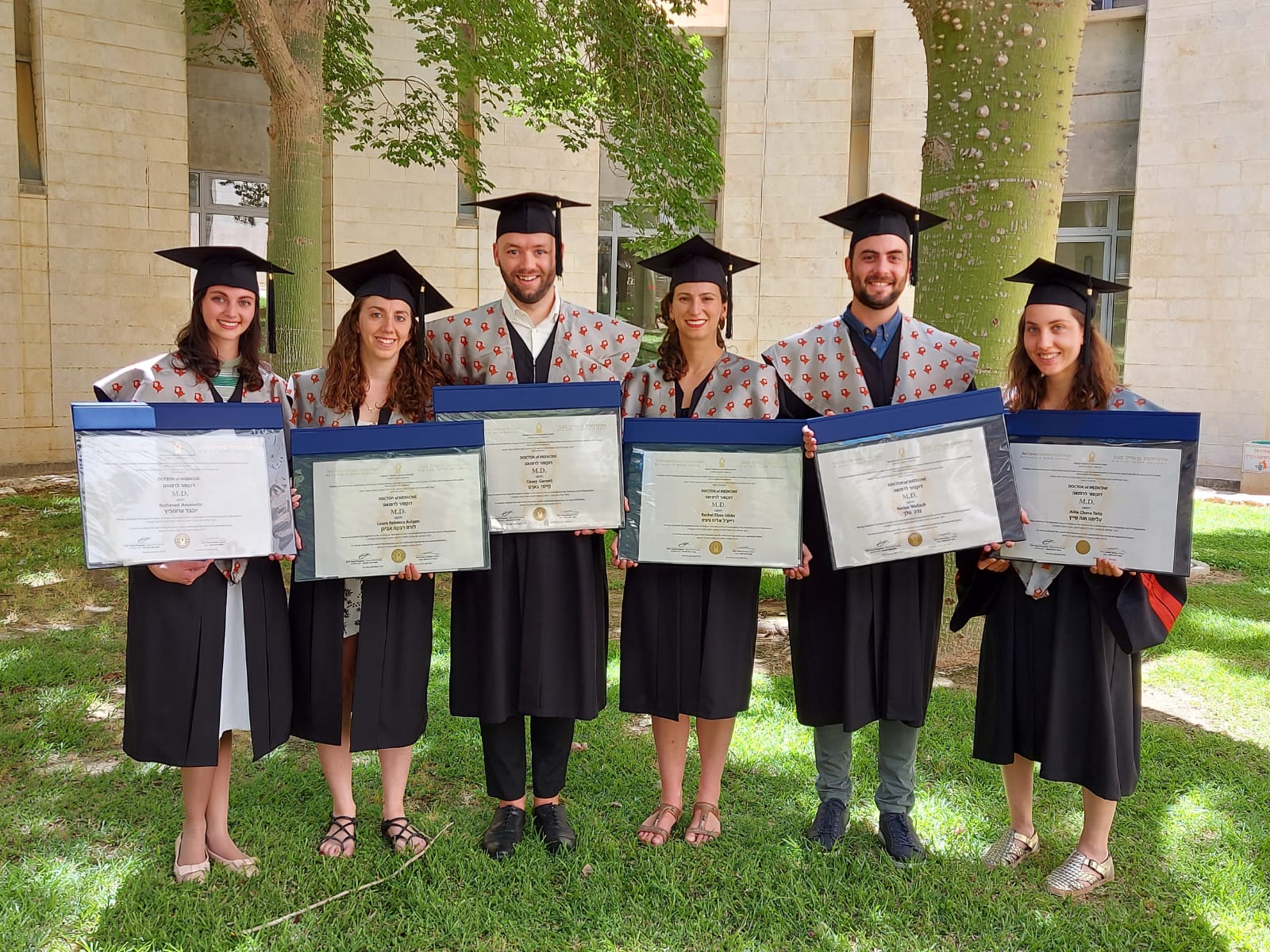Global Health Grant – From Gondar to Beersheba
“Visiting MSIH has been a life-changing experience for both of us. We’ll go back to Ethiopia with a whole new perspective and a renewed sense of purpose. We now know there are so many improvements that can be made and although we’re only students, in the future, we’re determined to influence how medicine is taught and practiced at home.”
These words, spoken in unhesitant English by Ekram Abdu Seid – one of two 6th year Medical students from Ethiopia – elicited an impromptu round of applause from MSIH students, who’d come to listen to their farewell presentation.
“We learned so much in our 10 weeks at MSIH and in the hospital and we’re taking a great deal of knowledge back with us.”
Ekram, along with fellow student, Elshaday Amare Haile, were part of an annual MSIH Global Health Grant project that provides scholarships to bring Ethiopian medical students to Beersheba to participate in clinical electives.
“We’ve been sending MSIH students to Ethiopia for 4th year clinical clerkships for years,” said Mike Diamond, MSIH’s Global Health coordinator, “but it’s important that this is a two-way street, so we bring students to Israel too.”
About eight Ethiopian medical students have passed through MSIH in the last 6 years.
Healthcare in Ethiopia – Hierarchical Education System
Neither Ekram or Elshaday – both 24 and in their final year of medical studies at the University of Gondar – had ever left Ethiopia before. Travelling to a foreign country with cutting edge medicine and equipment introduced them to a new world.
“It’s so very different,” said Elshaday, “even the teaching. It’s the most striking thing I noticed. Students interact informally with their professors; senior doctors try to get to know their students personally. In Ethiopia it’s much more hierarchical and our teachers are almost unapproachable. You learn so much more in an informal atmosphere. Students aren’t afraid to ask questions.”
Hands On
“There’s also more practical, clinical teaching in Israel, and that’s something we can learn from too,” explains Ekram.
She recounted a moment when one of the differences really struck home.
“There’s a much greater dependence on machinery and technology here,” she explained. “At one stage one of our teachers told the students that there’s a certain procedure conducted with ultrasound guidance that some older doctors think should be done manually to minimize costs. We do it manually every day in Ethiopia.”
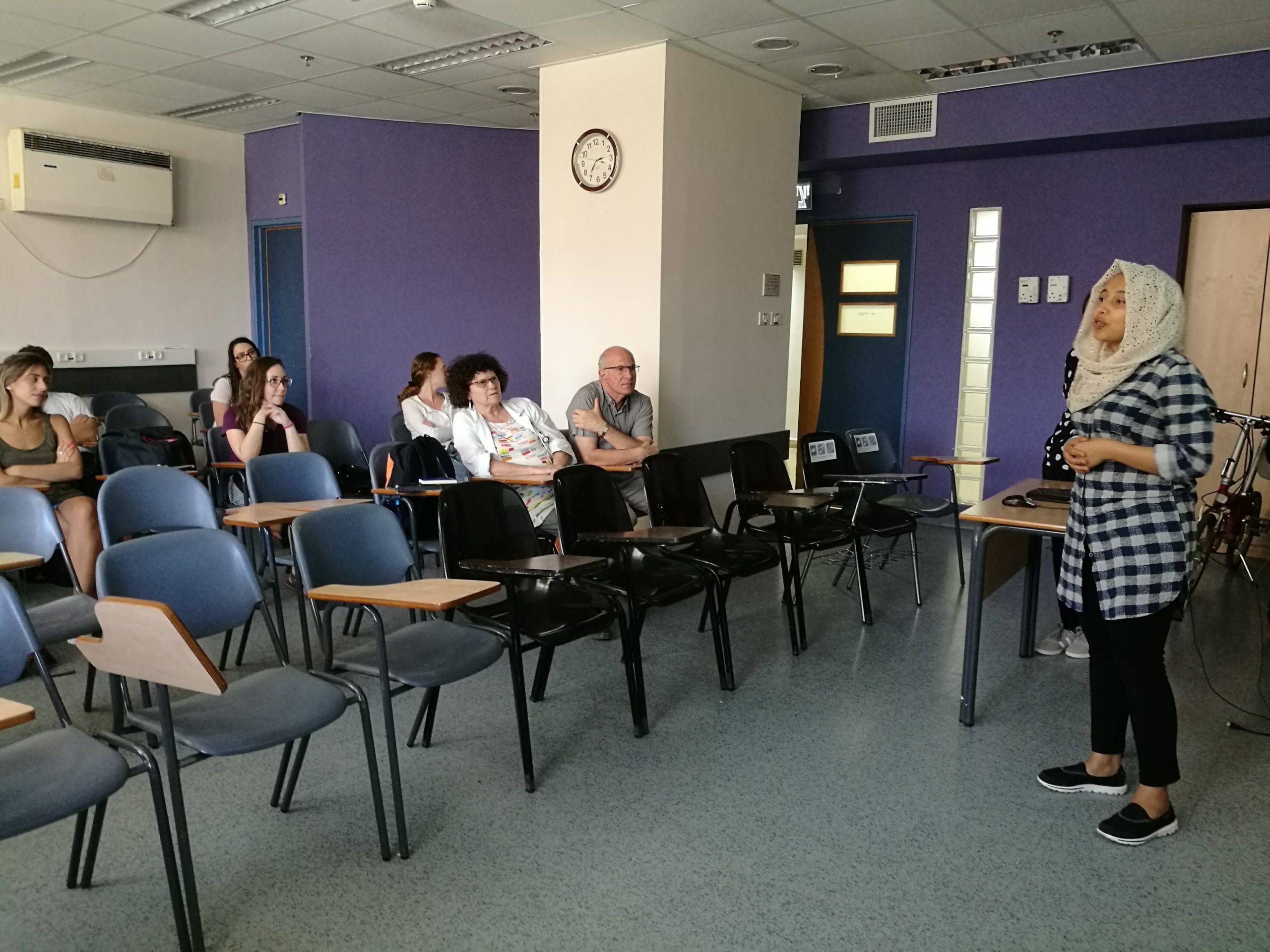
Ekram, who is Muslim and wears a hijab, was surprised to find the headdress was very common in Israel. “Nobody treated me differently,” she said. “It’s not what I’d expected.”
Asked if she’d had a chance to speak to other Muslims, she admitted she’d wanted to but spoke no Arabic. “Unfortunately, all I know is English and Amharic and I couldn’t get around that obstacle.”
Elshaday comes from a Christian background and was enthusiastic about her visit to “the Promised Land.”
Life-Changing Experience
“Our Global Health grants give Ethiopian medical students a life-changing experience,” says Diamond. “For our full time students, visiting a foreign country is a common event, but for our Ethiopian visitors their time in Israel can literally change their lives. From listening to Ekram and Elshaday today, I think it really did, and MSIH is proud to be able to give back to the communities who help us in our quest to teach medicine in a global environment.”


